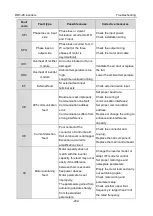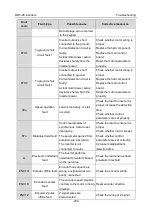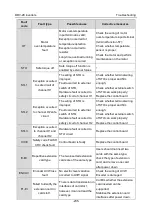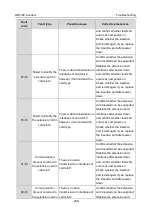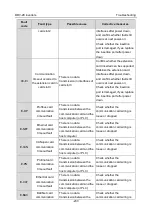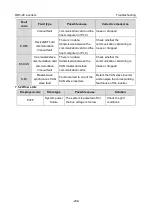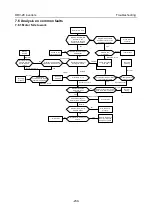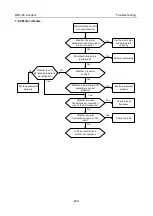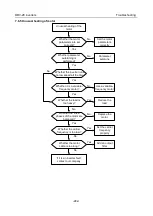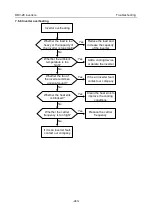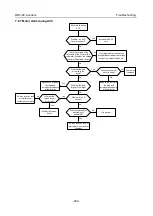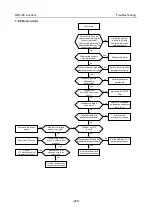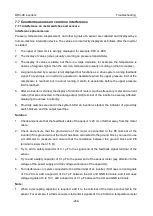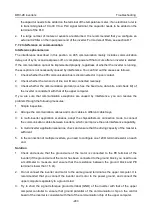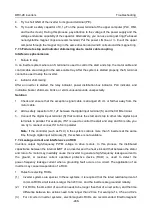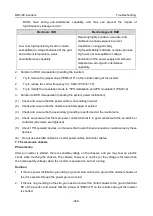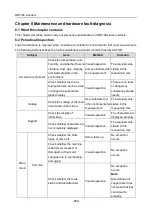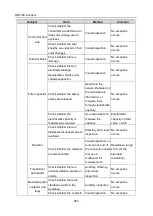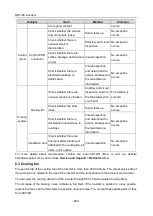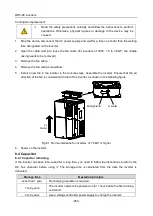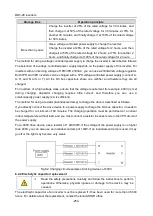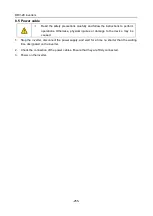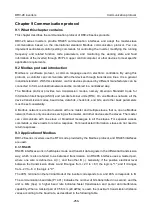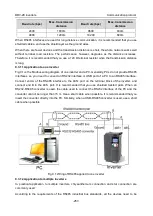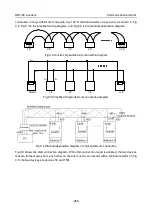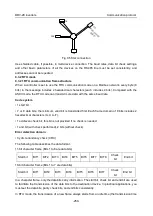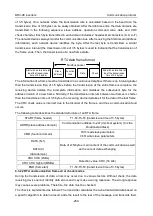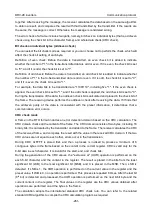
DRV-28 inverter
s Troubleshooting
-246-
7.7 Countermeasures on common interference
7.7.1 Interference on meter switches and sensors
Interference phenomenon
Pressure, temperature, displacement, and other signals of a sensor are collected and displayed by a
human-machine interaction device. The values are incorrectly displayed as follows after the inverter
is started:
1.
The upper or lower limit is wrongly displayed, for example, 999 or -999.
2.
The display of values jumps (usually occurring on pressure transmitters).
3.
The display of values is stable, but there is a large deviation, for example, the temperature is
dozens of degrees higher than the common temperature (usually occurring on thermocouples).
4.
A signal collected by a sensor is not displayed but functions as a drive system running feedback
signal. For example, an inverter is expected to decelerate when the upper pressure limit of the
compressor is reached, but in actual running, it starts to decelerate before the upper pressure
limit is reached.
5.
After an inverter is started, the display of all kinds of meters (such as frequency meter and current
meter) that are connected to the analog output (AO) terminal of the inverter is severely affected,
displaying the values incorrectly.
6.
Proximity switches are used in the system. After an inverter is started, the indicator of a proximity
switch flickers, and the output level flips.
Solution
1.
Check and ensure that the feedback cable of the sensor is 20 cm or farther away from the motor
cable.
2.
Check and ensure that the ground wire of the motor is connected to the PE terminal of the
inverter (if the ground wire of the motor has been connected to the ground block, you need to use
a multimeter to measure and ensure that the resistance between the ground block and PE
terminal is lower than 1.5 Ω).
3.
Try to add a safety capacitor of 0.1 μF to the signal end of the feedback signal terminal of the
sensor.
4.
Try to add a safety capacitor of 0.1 μF to the power end of the sensor meter (pay attention to the
voltage of the power supply and the voltage endurance of the capacitor).
5.
For interference on meters connected to the AO terminal of an inverter, if AO uses current signals
of 0 to 20 mA, add a capacitor of 0.47 μF between the AO and GND terminals; and if AO uses
voltage signals of 0 to 10 V, add a capacitor of 0.1 μF between the AO and GND terminals.
Note:
1.
When a decoupling capacitor is required, add it to the terminal of the device connected to the
sensor. For example, if a thermocouple is to transmit signals of 0 to 20 mA to a temperature meter,

